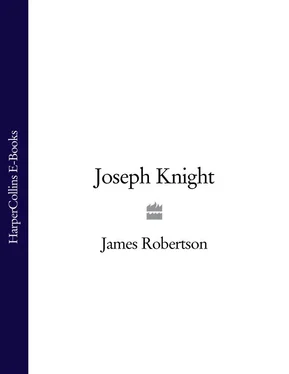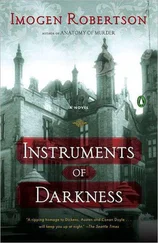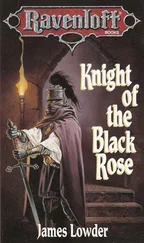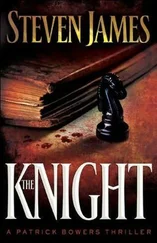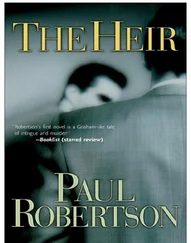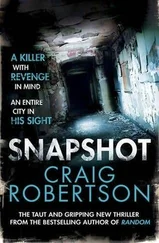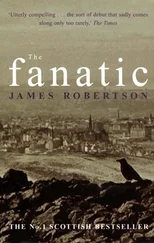The Reverend Arthur did not take pleasure from rubbing shoulders with trouble. He had obligations to the family, of course; he sympathised, even, but he had been thinking uncharitable thoughts about the Wedderburns all week. Between times he had been praying hard: for forgiveness if he had done wrong; for strength if he was doing right; but most of all, he was praying that John Thomson would quickly leave his service, go to London, and never come chapping at the door of his manse again.
The spectral figure, in an astonishingly filthy shepherd’s plaid, had barely been able to speak when it appeared just before dinner on that chilly April day. Young John had managed only a few words about the battle, his uncle Robert Wedderburn, and his hope of sanctuary. By the time Mrs Arthur and a maid had bundled the lad indoors, stripped him, bathed him and put him to bed in the attic, away from prying eyes, dinner had been quite spoiled. An urgent discussion had ensued about what to do with him, always supposing he did not die of his ordeal.
It had been Mrs Arthur, more moved than her husband, more seduced by emotion, who had thought of the General Assembly, which would be taking place in little over a fortnight. The Reverend would be setting out early, as he had other business in the capital. He would not normally go to Edinburgh without a servant, but old Tam Tosh, who might have accompanied him, was so arthritic these days that he dropped anything heavier than a comb: now here was a young fellow ready made, and quite plain-looking too. Busy Edinburgh would be safer for the boy than these glens into which inquisitive soldiers would soon be marching. Reluctantly, Mr Arthur had agreed. On the road between Angus and the capital, John Wedderburn had been lost and John Thomson born.
They were lodged in the Canongate, and when the minister went out he preferred it if John Thomson went too. This was because the lad would not stay in their room alone, but wandered the streets speaking to God knew who. Worse, he wrote letters to his mother in a clumsy code that a spy would crack on the first page, asking for news of his father, and rounding off with requests that she, Lady Wedderburn, send him, John Thomson, more clothes, and that she remember him to his aunt! Mr Arthur felt it necessary to regulate his servant’s supply of paper and ink, and to keep him by his side as much as possible.
The only consolation was that Edinburgh, which barely half a year earlier had been swooning at the feet of the Chevalier, was now so fervently back in the Hanoverian fold that nobody thought any rebels in the town – for of course everybody understood that plenty were there – posed any great threat to national security. How conveniently, for example, certain non-combative poets and booksellers, famed for their Jacobite sympathies, had absented themselves from the capital during the occupation, and how easily they had returned to resume a peaceful life and, tentatively at first, to write songs of heroism and betrayal.
In spite of this, Mr Arthur was less inclined to break out in a cold sweat if he could keep John Thomson under his close personal observation. He had him attend him to St Giles’ for the General Assembly, which venerable body humbly composed a thank-you letter to His Royal Highness, the Duke of Cumberland. The letter praised the Duke’s generous resolution in delivering the Scottish Church and Nation from the Jacobite army; acknowledged the many fatigues he had endured and the alarming dangers he had run in pursuing that ungrateful and rebellious crew; expressed the Church’s great joy in the complete victory he had now obtained by the bravery of his Royal Father’s troops, led on by his own wise conduct and animated by his heroic example; and, finally, prayed that the Lord of Hosts, Who had hitherto covered his head in the day of battle, might yet guard his precious life, and crown him with the same glorious success, and that his illustrious name might be transmitted with still greater glory to latest posterity. This was approved, applauded and dispatched by His Royal Highness’s most obliged, most obedient and most humble servants, the ministers and elders of the Kirk: a letter so nauseatingly obsequious that it made Mr Arthur feel quite ill as he voted for it.
Fortunately for the minister, his purgatory did not extend beyond the duration of the General Assembly. John Thomson, a half-hysterical, frozen, wasted child a fortnight past, had come back to life in the miraculous way of youth, and intended to set off at once for London. There, according to information contained in a note from his brother James to their mother, and communicated by her to the minister (a paper trail that made Mr Arthur shudder), a ship had docked bearing such prize captives as the Earl of Kilmarnock, the Lords Balmerino and Cromartie, Sir James Kinloch and Sir John Wedderburn. The prisoners had been distributed to jails as yet unknown, to await the gathering of evidence against them. Clearly, the eldest unincarcerated male Wedderburn’s place was at his father’s side, or as close to it as he could get without being detected and put there literally. Greatly relieved, the Reverend Arthur returned alone to Glen Isla. John Thomson boarded a vessel at Leith, and worked his passage south to the English capital.
London, June – November 1746
In London young John, now neither Thomson nor Wedderburn, was given safe lodging and subsistence by a relative, a Mr Paterson, through whom he was also reunited with his brother. James, just fifteen years old, as one who had not been out, was at liberty to travel where he wanted throughout the kingdom. As soon as he had heard of his father’s capture he had mounted his favourite pony and headed south, putting up in byres and stables on the way. Anger and the snorting of cattle had kept him awake most nights: anger at not having been at Culloden, anger at his father’s capture, at his father for having been captured, at John for not having been; this burning rage had driven him all the way to London. There he had found that his father was in the new jail at Southwark along with a number of other Jacobite gentlemen. They were being treated, all things considered, with the courtesy their social status demanded. In the Highlands, meanwhile, poor men were being shot on sight, their wives and daugters raped, their cottages burnt and their cattle slaughtered. Large numbers of destitute peasants, brought out on pain of death by their chiefs, were being condemned to transportation. Now, with John’s arrival, James’s anger began to settle like the bed of a fire, his character to harden into something new and purposeful.
James looked like a Wedderburn but he was darker-haired, softer-skinned, more lightly built than his brother. He had been making women fall for him since before he was conscious of his own charms. As a bairn he had had a smile and an eye that could melt most female hearts, and in London it was no different, except that now he was aware of his power. John used to watch him, and was envious of the ease with which he attracted women, the way he toyed with them, the disdain with which he dismissed them.
James seemed also to take a certain satisfaction from being the only connection between his older brother and their father. He was allowed regular access to the prison, bringing Sir John fresh linen, soap, books, tobacco and a few other luxuries. James and young John spent much time together, and too much money, in coffee houses and taverns. This earned a rebuke or two from the father, which James took almost as a mark of appreciation. In August he turned sixteen. He bought himself an interesting present: a whore in Covent Garden.
In Southwark jail Sir John Wedderburn kept good heart: he was glad to have one son near him; glad, too, to hear that John was, for the moment, out of harm’s way. He wrote to his wife, and heard back from her how, with his other children, she now lived in straitened circumstances in Dundee, having been ejected from the farm at Newtyle. This was a sore blow, but they had never had much money anyway. He would find a way to make amends.
Читать дальше
